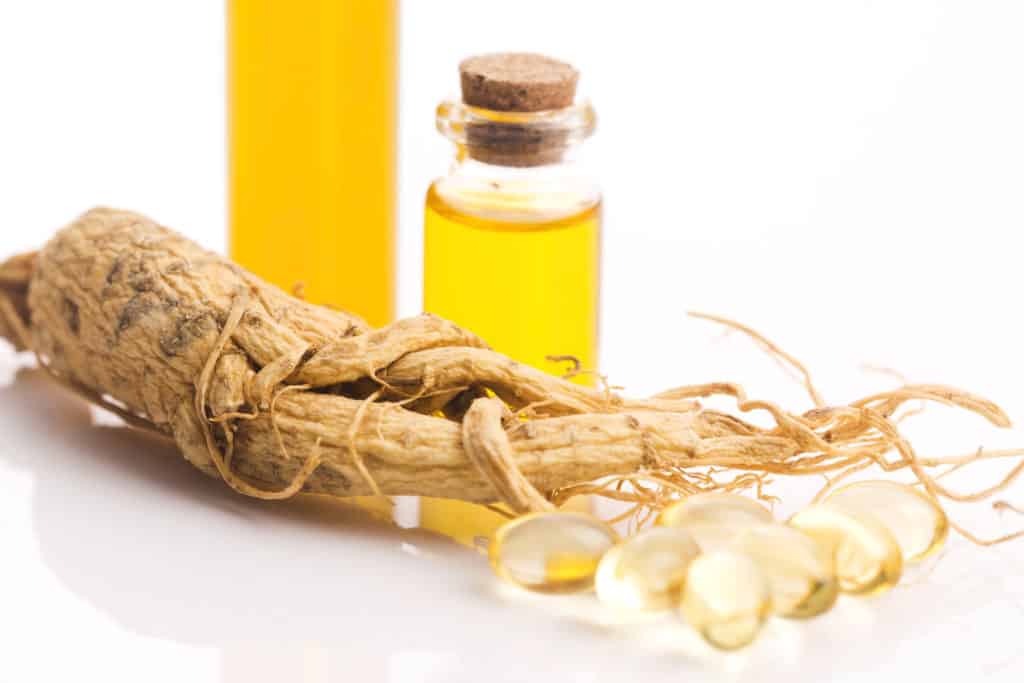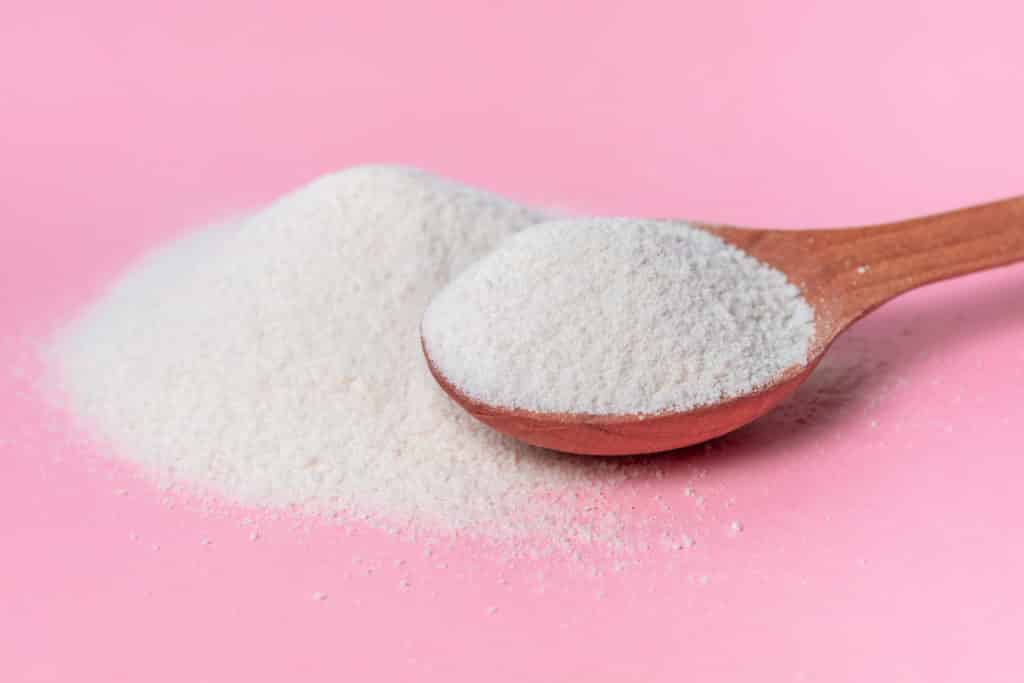10 Ways to Increase Your Collagen Production
You may already know what collagen does for the skin, and are only here for insight on how to increase collagen production. If so, feel free to skip straight to the list. However, if you’ve just heard about it and aren’t sure exactly what it is or what it does, here’s a crash course on collagen for you.
Collagen is a fibrous protein and, along with elastin, makes up the extracellular matrix that provides strength and elasticity in the skin. Collagen is also present in other connective tissues throughout the body, such as ligaments, tendons, and muscles. It’s primary function in the skin is to provide it with structure and allow it to stretch and bounce back. It also helps skin renew and repair itself.

Unfortunately, as we age our bodies begin to produce less collagen, and we can see the effects of this in sagging or wrinkled skin. Oh, aging, the gift that keeps on giving. But at least we learn a little each year, and we wouldn’t trade that wit and wisdom for the world. Where we can, though, most of us will take some steps to preserve the suppleness of our skin. Some collagen loss is inevitable, since we still haven’t found a way to stop time. However, there are methods to mitigate a few of these adverse effects that aging brings, and increasing your collagen production is key.
So here’s to health, happiness, and beauty inside and out at every age! Now let’s get down to some strategic steps to increase collagen production, so your skin can take center stage.
1. All Hail Aloe Vera
Once again this magical plant makes an appearance on our list. We know Aloe can feel soothing after a sunburn and helps hydrate your skin. It also boasts anti-inflammatory and antibacterial properties which may be part of the reason it calms skin and appears to reduce pain from a burn, as we mentioned in a previous blog post about when to apply sunscreen. And as if all of that wasn’t enough, it turns out it can aid in collagen production as well.
Research has shown that consuming an extract of Aloe (which are referred to as Aloe sterols) had a positive effect on the production of both hyaluronic acid and collagen. The participants who took the Aloe sterols showed approximately a two-fold increase in collagen production, as well as a measurable decrease in wrinkles.
This, or course, does not mean that you can slather it on your skin and see the same results. Ingesting Aloe sterols will have a different impact than applying to your face. It’s best to seek the advice of a professional when considering any new treatment or supplement, so ask your dermatologist for their insight on the matter.
See Related: Why Do Dermatologists Prefer Glycolic Acid Peels Over Other Chemical Peels??
2. Three Cheers for Vitamin C
Yes, C is for cookie, as cookie monster has astutely pointed out, but C is also for Vitamin C and its close relation to collagen. That’s, correct, Vitamin C isn’t just crushing it at curing scurvy, though we all learned that somewhere along the line as well. Vitamin C is essential for the synthesis of collagen. It works with two enzymes that give strength to and stabilize the amount of collagen between cells, which leads to anti-aging effects.
Both consuming Vitamin C in foods and using it in a topical cream have resulted in health benefits. However, the vitamin C in topical creams can tend to be unstable and light sensitive, which means if you do decide to use such a serum, you should make sure it’s in an opaque container and stored at the recommended temperature. As a bonus, it’s also an anti-inflammatory that’s been found to be photoprotective. That means it fights against oxidative damage and other harm resulting from too much sun exposure. That does not mean it protects against the sun. For that, you still need to reach for that sunscreen.
3. Say “Hi” to Hyaluronic Acid and “Goodbye” to Fine Lines
People often think of acid as a harsh chemical that can burn the skin, or something that must have been rather slippery, since so many people ‘dropped’ it in the ‘60s (wink wink). And while the word acid may have several meanings, hyaluronic acid is actually amazing for the skin. As a humectant, hyaluronic acid is key to keeping the skin supple, and really draws in moisture so that skin looks and feels hydrated and healthy.

Hyaluronic acid (HA) is a molecule that is produced naturally by your body, but like collagen, there is less of it as we age. Luckily, we have ways to replenish it, either by ingesting it or applying it topically on the skin. You can get it into your system through foods that are rich in amino acids, like root vegetables and beans, via supplements or in your skincare. Those are all bound to boost your levels. And here’s the cool thing, increasing your HA can increase your collagen production as well. They are actually complementary and work together to make your skin look younger.
One more thing to know about hyaluronic acid: since the sun speeds the breakdown of HA, make sure you stay safe and avoid those harsh UV rays. In other words, find a friend like Rihanna and stand under her umbrella…ella…ella…eh…eh?
See Related: What Are the Benefits of Using a Water-Based Moisturizer?
4. Panax Ginseng
Sure it sounds like a dystopian sci-fi thriller where only Jennifer Lawrence and Keanu Reeves can ensure the survival of our planet (or are they really saving each other and finally learning to love?). I’ll save the rest for screen, but for now, all you need to know is that Panax ginseng is the Asian ginseng and Panax quinquefolius is the American strand (and both are more commonly known as just ginseng

Fun fact: panax means “all healing,” and one of those healing properties appears to be increasing the amount of collagen in our bloodstream. One study found that ginseng protected skin cells’ connective tissue (called fibroblasts), which in turn stimulated collagen synthesis. Of course every study always cautions that additional research is required before drawing too many conclusions, but there’s also very little possibility of negative side effects on this one, so…tea time, anyone?
5. We Think You Are Ready for This Jelly
Gelatin, that is. Gelatin is derived from collagen – basically the cooked form that becomes a jiggly-type solid when it cools. They consist of similar combinations of amino acids, and both can improve skin texture and appearance. If you’ve ever made Jello before, you know it’s simple to make, and now you know it can simply make a difference. It also seems to help with joint health as well as improve the look of your locks. It’s been shown to have a positive impact on hair thickness.
There are studies to suggest that gelatin can increase collagen density in the skin as well as moisture levels. Both of these things, as we’ve established, mean a change in the appearance of the skin, and it’s definitely a change for the better.
Bonus: What Are the Benefits of Using a Water-Based Moisturizer?
6. Collagen Supplements, For Collagen’s Sake
Feel free to file this under the “of course” column, but it’s not always obvious that taking supplements will achieve the desired effects. It seems like if you want more collagen, then take collagen, but the results do differ depending on how it is derived and delivered. As we pointed out above, gelatin and collagen are linked, and sometimes the terms are even used interchangeably because collagen is a major component of gelatin.
And yes, there ARE vegan and plant-based options! In fact, a plant-based collagen supplement is a healthier, natural way to improve your skin, and your overall health!

At first it was a fad to inject collagen, until that fell out of favor (some had allergies or adverse reactions), but now there is a growing body of evidence that supports supplements might be where it’s at.
There was one study that showed a marked improvement in skin conditions like elasticity, moisture, and smoothness for participants that were given collagen hydrolysates as compared to those that received a placebo. Interestingly, there were two groups that received supplements, and those who were given the higher content of bioactive collagen peptides were linked to even more significant results.
Other studies show similarly promising outcomes, and it looks like taking these supplements might stimulate production of elastin and fibrillin as well, which are proteins that provide additional support and structure to your skin. Of course, other studies are not always able to replicate results, so check out the sources if you want to know more.
7. Feed Your Face
Here’s a fun one! Similar to the idea above, but instead of supplements, you get to chow down on some collagen-rich foods. Bell peppers, tomatoes, cashews, and beans – these should be a few of your favorite things. Beans contain amino acids critical to collagen synthesis. Cashews contain copper and zinc, both of which have been shown to stimulate collagen production. Bell peppers, tomatoes, tropical fruits, and other foods high in vitamin C, as we discussed above, have helpful and healthful benefits when it comes to collagen.

There are some questions surrounding how foods and nutrients are absorbed and whether stomach acids may break them down in a way where they don’t directly translate into increased collagen production. However, some studies support the idea that a healthy diet with collagen-rich foods leads to benefits like firmer skin. Plus, with this one, you get to eat yummy food either way!
See Related: Hyaluronic Cellular Recovery™ AHA Serum
8. Give Red Light The Green Light
Though we’re always falling short of the fountain of youth, we continually search for treatments that at least erase a few years of wear and tear from our weary skin. One such therapy is red light therapy. Unlike laser treatment and chemical peels, this option doesn’t cause any damage to the surface of the skin. Those approaches rely on the regeneration of new skin cells to emerge afterwards.
With red light therapy, wavelengths of red and near infrared light stimulate cells so that they’re able to convert that light, as well as oxygen and nutrients into energy that our bodies can use more efficiently. The increase in energy and circulation enables certain cells (fibroblasts) to create more collagen, and there are some studies to support these claims. As you might expect, after reading everything up to now about collagen, this treatment has been shown to improve the firmness of skin and reduce the appearance and depth of wrinkles.
And if you want to get more detailed information about this one, here’s a handy video that digs a little deeper:
9. Hey, Hey, Vitamin A
Topical retinol and retinoids are vitamin-A based drugs that were originally used to treat acne. Eventually researchers and dermatologists discovered that it also worked for other skin ailments like keratosis and hyperpigmentation. Since retinol removes dead skin cells and speeds surface cells to die more rapidly, it helps facilitate turnover, and clears the way for new skin cells. This reveals a newer, fresher layer of skin and reduces the look of fine lines if used regularly. In addition, it slows the breakdown of collagen.
There is even evidence that it stimulates new blood vessels in the skin, and in the deeper layers increases collagen production. However, since it does speed skin cell turnover, it can cause irritation. You should talk to a dermatologist before you begin any new treatment like this so they can recommend a frequency, and remind you to wear sunscreen, since it increases your chances of sunburn.
10. Antioxidants? Pro-collagen!
Most of us have heard of antioxidants by now, but what are they again? Well, they help protect skin cells from free radicals, which are molecules that damage skin through oxidation (or stealing electrons from cell membranes). Not so radical now, right dude?
Anyhow, in addition to doing that job, certain antioxidants also increase collagen production, and at the very least, help the collagen you have be the best collagen it can be, to put it in terms of a graduation speech. You can find antioxidants in foods and drinks like green tea, blueberries, basil, and cinnamon, so it’s a pretty sweet deal, either way.

If you’ve already experienced Viviane Woodard’s products, then it will come as no surprise that several of these creams and complexes boost collagen production and improve skin’s appearance. The entire anti-aging line is packed with ingredients proven to increase elasticity and make skin more firm and youthful. Whether it’s moisturizers or mists, you’ll feel and see a difference.
The Intensive Hydration Mist infuses moisture in your skin with hyaluronic acid, which you’ll remember does many marvelous things for your face (see #3 above!). The silky Nutri-Cell complex combats the damage done by the elements over time by combining collagen, elastin, and a blend of vitamins and herbs. And if you’ll allow me to sing the praises of just one more product, Viviane Woodard’s Advanced Anti-Aging Night Cream harnesses the magic (okay, science) of Matrixyl, which is one of the key peptides present in collagen supplements and essentially refills wrinkles from within by stimulating the natural production of collagen and hyaluronic acid. And that’s not even mentioning the antioxidants present in the green tea and Vitamin A it contains. Okay, well, I guess I mentioned it now. The cat’s out of the bag. And the collagen is back in your skin, where it belongs!
Keep Reading: Guide for People Who Use Products Containing Glycolic Acid
—
For over 60 years, Viviane Woodard has represented “The Purity of Skincare”. We are the leading beauty brand for water-based skin care products and promote the importance of good skin hydration. Follow us on Facebook, Instagram, Twitter, and Pinterest for skin care tips, product discounts and more.
